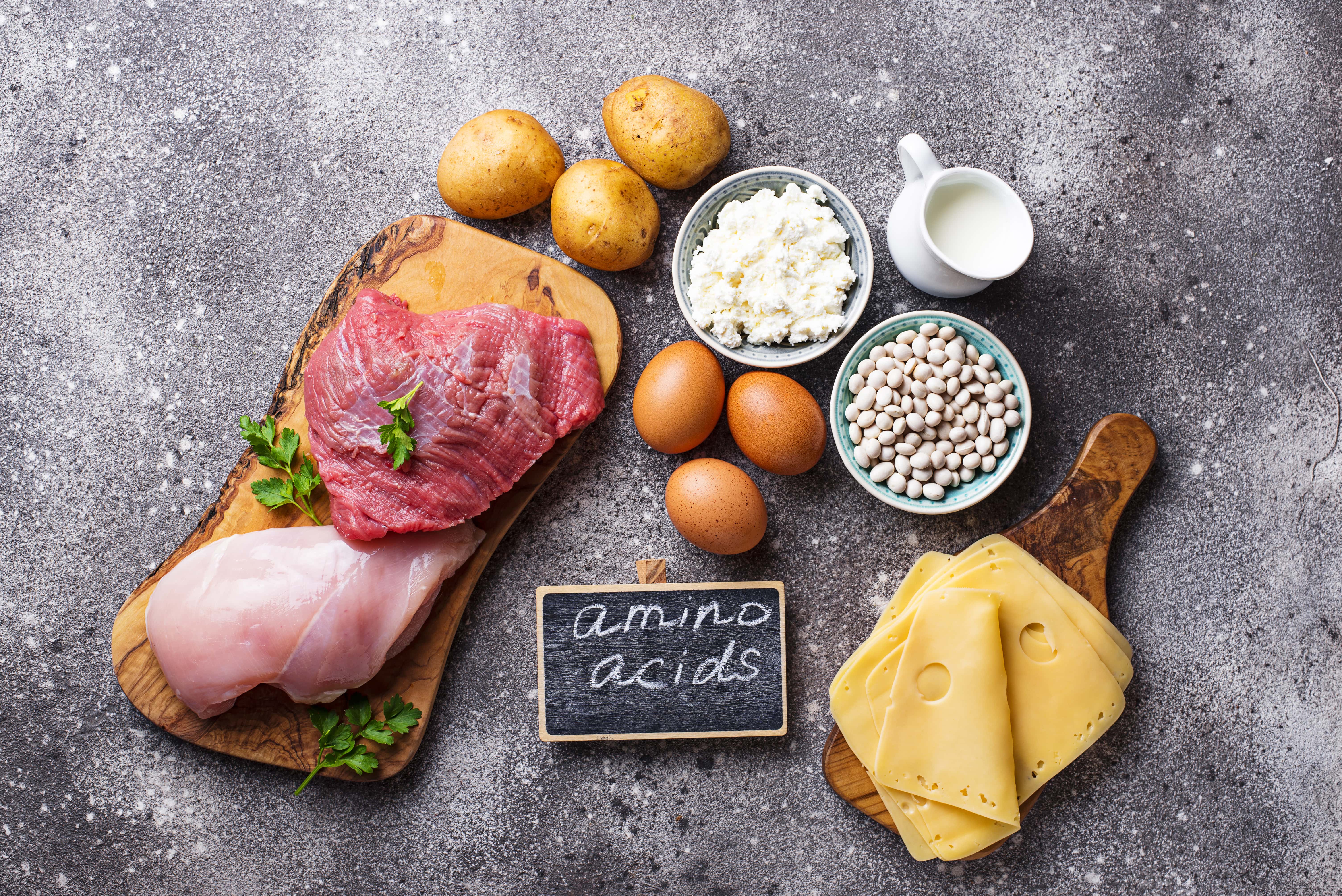Protein ABC: Your Hormonal Hero
- Talia Dali
- Food & Hormones
One of the things I talk about all the time in my practice is nutrition—especially when it comes to protein. So, let’s break it down in a simple, friendly way, and help you understand why protein is so essential.
Why Is Protein So Important?
Protein is made up of tiny building blocks called amino acids, and while your body can make some of these, there are nine essential amino acids that you need to get from your diet. These amino acids play all kinds of roles in keeping you healthy—from repairing muscles to helping your body produce hormones and supporting your immune system.
But here’s the kicker—your body can’t store protein like it does fat or carbohydrates. That’s why it’s so important to eat it regularly!
Let’s Break Down the Essential Amino Acids
1. Histidine: Think of this as your immune and sleep helper. It’s key for growth, tissue repair, and producing histamine, which helps with digestion, immune response, and sleep cycles.
2. Isoleucine: Super important for muscle recovery and energy regulation, especially after exercise.
3. Leucine: If you’re trying to build or repair muscles, leucine is your best friend! It’s vital for muscle growth and recovery.
4. Lysine: This one helps your body absorb calcium and is key for producing collagen, which keeps your skin and bones healthy.
5. Methionine: Great for your hair, skin, and nails. Methionine also helps your body detox and absorb important minerals like zinc and selenium.
6. Phenylalanine: Helps regulate your mood and mental clarity by supporting the production of neurotransmitters like dopamine.
7. Threonine: Important for keeping your skin and connective tissues healthy.
8. Tryptophan: You’ve probably heard of this one because it helps produce serotonin, the “feel-good” hormone that regulates your mood and sleep.
9. Valine: Another muscle repair superstar. It also helps with mental focus and muscle coordination.

Why You Need Protein Regularly
Unlike carbs and fats, your body can’t store protein. This means you need to eat it consistently to support everything from muscle repair to hormone production. Whether you’re recovering from a workout, dealing with hormonal shifts, or just trying to stay healthy, getting enough protein is essential. Plus, as we age, protein becomes even more important for maintaining muscle mass and bone health.
Protein Needs at Different Stages of Life
Your protein needs change as you go through different stages of life:
1. Adolescence: Protein supports growth and muscle development during puberty, so it’s extra important during those teenage years.
2. Reproductive Years: During this time, protein is crucial for maintaining muscle and regulating hormones. Active women may need more to support their workouts and daily activities.
3. Pregnancy & Postpartum: Your body needs extra protein to support your growing baby, the placenta, and milk production.
4. Perimenopause & Menopause: As estrogen drops, you start losing muscle mass. Increasing your protein intake can help preserve muscle and keep your bones strong.
5. Postmenopause & Beyond: As you age, protein becomes critical for preventing muscle loss (sarcopenia) and keeping your bones healthy.

Final Thoughts
No matter what stage of life you’re in, protein is a must-have for your health. It supports everything from muscle repair to hormone balance, and because your body can’t store it, you need to eat it regularly. So, whether you’re a teenager or navigating menopause, make sure you’re getting enough protein to keep yourself strong and healthy!